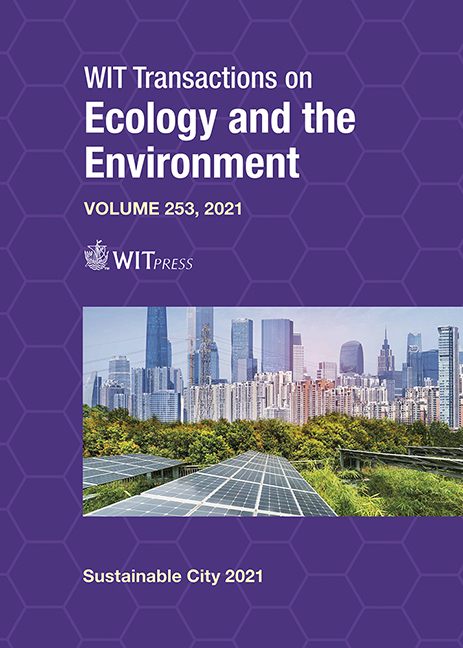ITACA PROTOCOL: A POSSIBLE PATH TO SUSTAINABILITY IN THE GOVERNANCE OF THE BUILDING PROCESS
Price
Free (open access)
Transaction
Volume
253
Pages
12
Page Range
111 - 122
Published
2021
Size
368 kb
Paper DOI
10.2495/SC210101
Copyright
Author(s)
GIUSEPPE IIRITANO, GIOVANNA PETRUNGARO, BARBARA CORASANITI, MASSIMILIANO BAGAGLI, LORENZO FEDERICONI, COSTANZO DI PERNA
Abstract
Pursuing and disseminating the principles of sustainable construction requires, at the highest levels, an overview of the issues affecting the area and a detailed analysis of the potential that some regulatory instruments offer. For these reasons, the governance of the territory must start from an accurate assessment of the objectives to be pursued and the careful choice of the means to do so. In Italy, Institute for Innovation and Transparency of Procurement and Environmental Compatibility (ITACA) has been promoting the principles underlying the sustainable development of the territory for over 20 years. The areas of action of the Institute are various and varied: drafting of tools and documents necessary for the evaluation of the sustainability of interventions, training of technicians and personnel who take part in the certification process, involvement of stakeholders and third parties and collaborations with national and international bodies. After the first approval of the ITACA protocol, which took place in 2004, the assessment tool has undergone numerous changes and evolutions until it was approved as UNI Practice in 2015. Now the UNI Reference Practice 13:2019 – Environmental sustainability in buildings - Operational tools for the assessment of sustainability is a nationally recognized rating system and its use and dissemination throughout the territory is being promoted through specific training courses for experts and inspectors. These courses will also allow to obtain the certification of skills according to the ISO/IEC 17024 standard. The ITACA protocol, over the years after its first approval, has been applied by various Italian regions within their own regional legislative autonomy and therefore constitutes a real shared institutional and “public” protocol. The Institute is also focusing on the development of the “urban scale protocol”, urban areas are in fact experiencing an unprecedented rate of population growth facing very complex environmental challenges.
Keywords
construction sustainability, rating tools, sustainability assessment.





